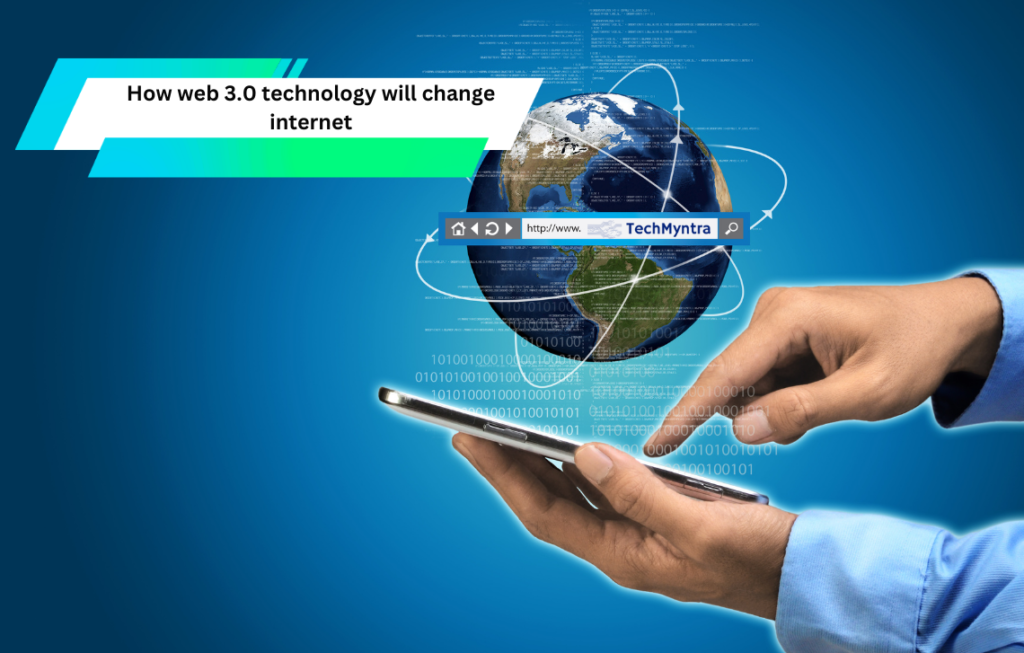The Internet has come a long way since its inception in the early 1990s. From simple web pages and basic HTML, we have seen a shift towards more interactive, dynamic and personalized experiences. However, the latest revolution in the Internet space is the advent of Web 3.0 technology, which promises to usher in a new era of connectivity, collaboration and innovation.
So, what exactly is Web 3.0 technology? In simple terms, it is the next generation of the Internet that will leverage the power of blockchain, artificial intelligence (AI) and decentralized applications (dApps) to create a more secure, decentralized and autonomous ecosystem.
In the current Web 2.0 paradigm, we rely heavily on centralized platforms like Facebook, Google, and Amazon to store and manage our data. While these platforms offer convenience and accessibility, they come with significant privacy and security risks, as they can be hacked, manipulated or censored by the centralized authority.
Web 3.0 technology aims to solve these problems by leveraging decentralized technologies like blockchain, which is a distributed ledger that enables secure and transparent transactions without the need for intermediaries. This means that users will have greater control over their data, as they can store it on decentralized networks that are immune to censorship and manipulation.
In addition to blockchain, Web 3.0 technology also leverages AI and dApps to create a more intelligent and personalized Internet experience. AI algorithms can analyze user data and behavior to provide personalized recommendations, while dApps can enable secure and decentralized transactions between users without the need for intermediaries.
One of the most promising applications of Web 3.0 technology is in the area of decentralized finance (DeFi), which is a financial system that operates on a decentralized, blockchain-based platform. DeFi offers numerous benefits over traditional finance, including greater transparency, accessibility, and security.
Table of Contents
How web 3.0 technology will change internet?
Web 3.0 technology is set to revolutionize the Internet by creating a more secure, decentralized and autonomous ecosystem. Here are some ways in which Web 3.0 technology will change the Internet:

Decentralization: Web 3.0 technology will move away from the centralized model of Web 2.0 and towards a more decentralized model. Decentralization will provide greater control to users over their data, as they can store it on decentralized networks that are immune to censorship and manipulation.
Blockchain: Web 3.0 technology will leverage blockchain, which is a distributed ledger that enables secure and transparent transactions without the need for intermediaries. Blockchain will provide greater transparency and security to users, as they can be assured that their data is not being tampered with or manipulated.
Artificial Intelligence (AI): Web 3.0 technology will leverage AI algorithms to provide a more intelligent and personalized Internet experience. AI will analyze user data and behavior to provide personalized recommendations, thereby enhancing the user experience.
Decentralized Applications (dApps): Web 3.0 technology will enable the development of decentralized applications (dApps) that can be used by anyone, anywhere in the world. These dApps will be secure, transparent and autonomous, and will enable secure and decentralized transactions between users without the need for intermediaries.
Decentralized Finance (DeFi): Web 3.0 technology will enable the development of decentralized finance (DeFi) platforms that operate on a decentralized, blockchain-based platform. DeFi will provide greater transparency, accessibility, and security in financial transactions.
Greater Privacy: Web 3.0 technology will enable greater privacy for users by providing secure and decentralized networks that are immune to censorship and manipulation. This will provide users with greater control over their data and protect them from cyber attacks and data breaches.
Advantages of Web 3.0 Technology
Web 3.0 is the next generation of the internet, which promises to provide a more immersive and personalized online experience. It’s an exciting time for businesses, individuals, and developers as Web 3.0 technology offers several advantages over its predecessors. In this article, we’ll explore some of the key advantages of Web 3.0 technology in points that can help boost your website’s SEO.

Decentralization: Web 3.0 technology is decentralized, meaning it’s not owned or controlled by any single entity. This decentralization provides greater transparency, security, and privacy for users, making it an attractive option for those concerned about data protection.
Increased Interoperability: Web 3.0 technology facilitates the interoperability of different blockchain protocols, enabling developers to build and deploy decentralized applications (dApps) with greater ease. This interoperability makes it possible for dApps to communicate with each other, creating new possibilities for innovation and collaboration.
Smart Contracts: Smart contracts are a crucial feature of Web 3.0 technology. These are self-executing contracts that automatically execute the terms of an agreement between parties when certain conditions are met. Smart contracts have numerous applications, including decentralized finance (DeFi), supply chain management, and digital identity management.
Personalization: Web 3.0 technology offers a more personalized online experience, allowing users to control their data and tailor their online interactions to their preferences. This personalization improves user engagement and increases the likelihood of repeat visits.
Improved Search Capabilities: Web 3.0 technology offers improved search capabilities, making it easier for users to find the information they’re looking for. This improved search functionality is due to the semantic web, which allows machines to understand the meaning of data, leading to more relevant search results.
Enhanced Security: Web 3.0 technology offers enhanced security through the use of advanced encryption algorithms and decentralized storage solutions. This enhanced security reduces the risk of data breaches and cyberattacks, providing greater peace of mind for businesses and individuals.
Increased Efficiency: Web 3.0 technology improves efficiency by reducing the need for intermediaries and improving the speed and accuracy of transactions. This increased efficiency reduces costs and enhances user experiences, making it an attractive option for businesses looking to streamline their operations.
Conclusion
Web 3.0 technology offers numerous advantages over its predecessors, including decentralization, increased interoperability, smart contracts, personalization, improved search capabilities, enhanced security, and increased efficiency. As the internet continues to evolve, Web 3.0 technology is poised to play a significant role in shaping the future of the online experience. So, it’s time for businesses and developers to embrace this emerging technology and leverage its advantages to provide a more immersive and personalized online experience.












